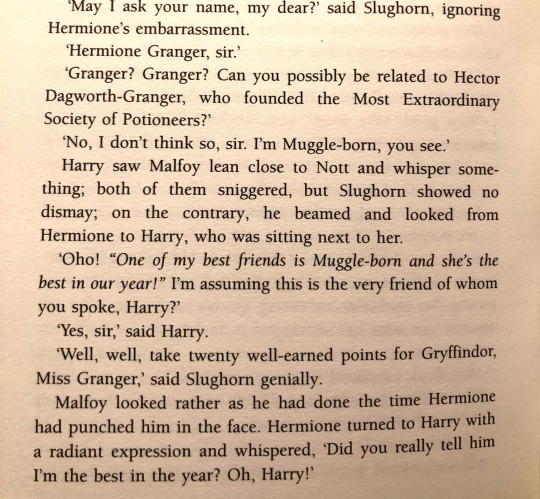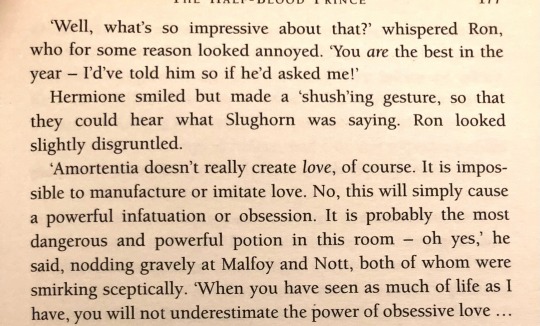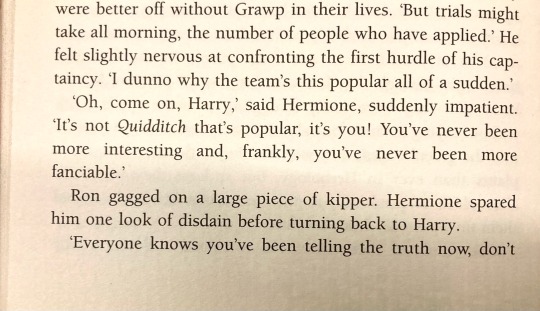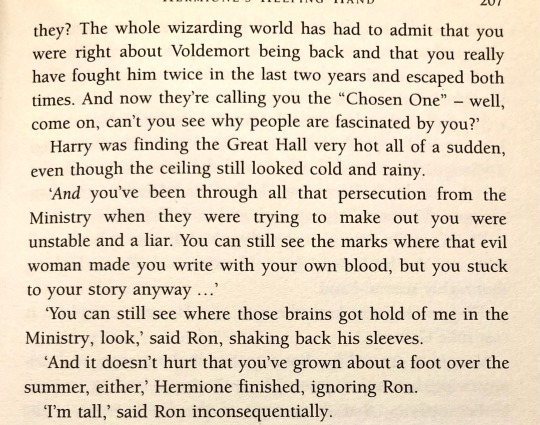#a very well known phenomenon amongst the members of the ‘in gay love with my best friend’ community
Explore tagged Tumblr posts
Text




the rituals are intricate and very comical
#idk what to focus on here. ron my guy dont you worry yourself about anything ❤️#your jealousy and resentment will lead you to make a mistake so big next year that it knocks enough sense into you for a lifetime#🔮 you will finally recognise your role as the glue that holds the trio together and you will vow to never abandon them again#only then will the circumstances be right for you discover that they both love you and need you🫵 as much as you love and need them 🔮☝️#that being said i did clock how flustered harry’s compliment made hermione and additionally#how harry blushed hearing hermione describe his romantic appeal.. id get scared too if i were ron. with or without inferiority complex#Also undeniably ron must agree with hermione that harry is ‘fanciable’ as fuck. or he wouldnt feel this threatened#also him gagging on his food after hearing someone verbalise this fact DHJDJ. you could of course chalk it all up to his crush on hermione#or you could add the very interesting layer of his own perception of harry to it#bc as i have wisely stated before in a previous post. ‘hee is obsessed with that harry kid’ <- i could write essays on this#but it boils down to the thin line between ‘i want to be that person’ and ‘i want to be WITH that person’#a very well known phenomenon amongst the members of the ‘in gay love with my best friend’ community#you can’t make this shit up. i don’t even have to try that hard to see romionarry in everything they just literally keep doing the work 4me#hp6#romionarry
17 notes
·
View notes